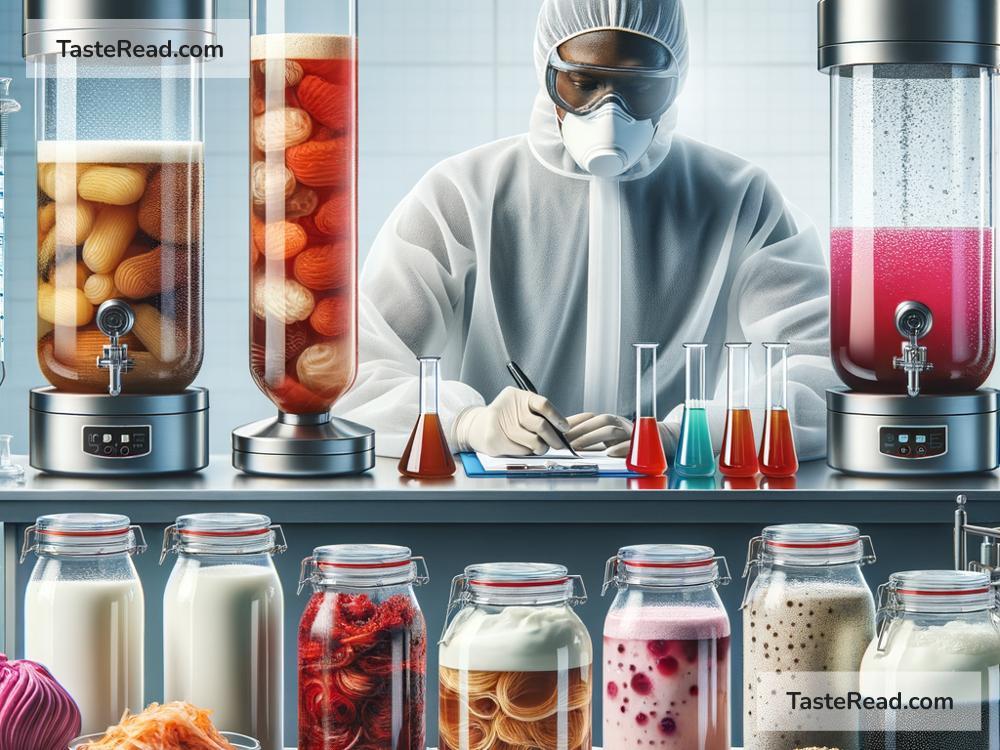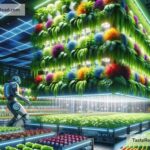The Future of Fermentation Technology: A Simple Guide to Big Innovations
Fermentation might sound like something scientists do in a lab, but it’s been a part of human history for thousands of years. It’s the process that helps make foods like yogurt, bread, cheese, and drinks like beer and wine. But fermentation is not just about food and drinks anymore. Thanks to incredible advancements in science and technology, the future of fermentation is looking brighter than ever — and it’s set to change the world in ways we’ve only just begun to imagine.
What Is Fermentation?
Fermentation is a natural process where microorganisms like bacteria, yeast, or fungi break down substances, often sugar, into simpler compounds. For example, yeast turns sugar into alcohol and carbon dioxide, which is why we get bubbly beer and fluffy bread. But modern fermentation goes way beyond this. Scientists have learned how to harness microbes to create things that were once unimaginable.
Why Does Fermentation Matter?
Fermentation won’t just help us create better foods — it could solve some of the world’s biggest problems. From climate change to feeding a growing global population, fermentation technology offers creative solutions. Here are a few reasons why it matters:
-
Sustainable Food Production
As the world’s population grows, we need to find new ways to produce food. Traditional farming takes up lots of land, water, and energy. Fermentation technology could change this. Using specialized microbes, scientists can create proteins, fats, and even flavors in labs safely and efficiently. These lab-grown ingredients could one day replace meat and dairy products, reducing the environmental impact of farming. -
Medicine Production
Fermentation has long been used to make drugs like antibiotics, but the future is looking even more promising. Scientists are now using fermentation to create molecules for vaccines, advanced medicines, and new treatments for diseases. Fermentation allows medicines to be made faster, cheaper, and more precisely. -
Reducing Waste
Every year, tons of food gets wasted — but fermentation technology could change that. Companies are working on ways to use fermentation to convert food waste into useful products like biodegradable plastics, energy, or animal feed. This means less waste in landfills and a more circular economy. -
Clean Energy
Fermentation can also be used to produce biofuels. Microbes can ferment sugars, algae, or waste materials into ethanol, which can be used as an alternative to gasoline. This offers a cleaner, greener way to power vehicles and machines.
Big Trends in Fermentation Technology
The world of fermentation is buzzing with innovation. New technologies have made it faster, more efficient, and more useful than ever before. Let’s look at some exciting trends that are shaping the future:
-
Precision Fermentation
Imagine being able to customize what microbes do — that’s what precision fermentation is all about. Scientists tweak microorganisms so they produce exactly what we need, like specific proteins or enzymes. For example, companies are using precision fermentation to create casein and whey proteins, which are the building blocks of dairy products, without needing cows. This technology could help create plant-based cheeses that taste just like the real thing. -
Alternative Proteins
Fermentation is powering the growth of alternatives to traditional meat. Companies are creating mycoproteins (proteins derived from fungi) that are packed with nutrients and have the texture of meat. Lab-grown meat and fish made through fermentation could also become more common, making food production more sustainable and less harmful to animals. -
Biodegradable Materials
Traditional plastic pollution is a huge global problem. Some companies are using fermentation to make biodegradable alternatives. Microbes can ferment plant starches into materials that act like plastic but break down naturally. This could revolutionize packaging and reduce environmental harm. -
Improving Gut Health
Fermented foods like yogurt and kimchi are great for your gut, but the future could take gut health to a whole new level. Scientists are exploring how to use fermentation to create custom probiotics — friendly bacteria that help digestion and boost immunity. These personalized probiotics could be tailored to each person’s unique health needs. -
Expanding Beyond Food
Fermentation won’t just stop at food, medicine, or energy. In the future, fermentation might even create materials for clothing, cosmetics, or construction. For instance, some startups are developing fermented spider silk, which could be used to make lightweight but super-strong clothing.
Challenges and Opportunities
As exciting as the future of fermentation technology is, it’s not without challenges. Scaling these innovations to meet global demand will take time, investment, and collaboration. Additionally, people need to trust and embrace these new technologies. Some consumers may hesitate to eat lab-grown food or use products made through fermentation, so education and transparency will be key.
On the flip side, the opportunities are enormous. Fermentation could help fight climate change, improve global health, and redefine industries like agriculture, energy, and manufacturing. Governments and private companies are already investing heavily in this space, signaling that fermentation truly holds a lot of promise.
Final Thoughts
Fermentation may have humble roots, but its future is full of possibility. It’s no longer just about making bread rise or turning grapes into wine — it’s about creating a better, healthier world. As science and technology advance, fermentation will help solve global challenges and inspire even more innovations. Whether it’s lab-grown meat, biodegradable plastics, or medicines produced faster than ever, fermentation will play a big role in shaping the future. And the best part? This revolutionary technology is powered by something as simple as microbes.
The next time you enjoy a cup of yogurt or a slice of bread, imagine where fermentation could take us next — because its journey is only just beginning!


